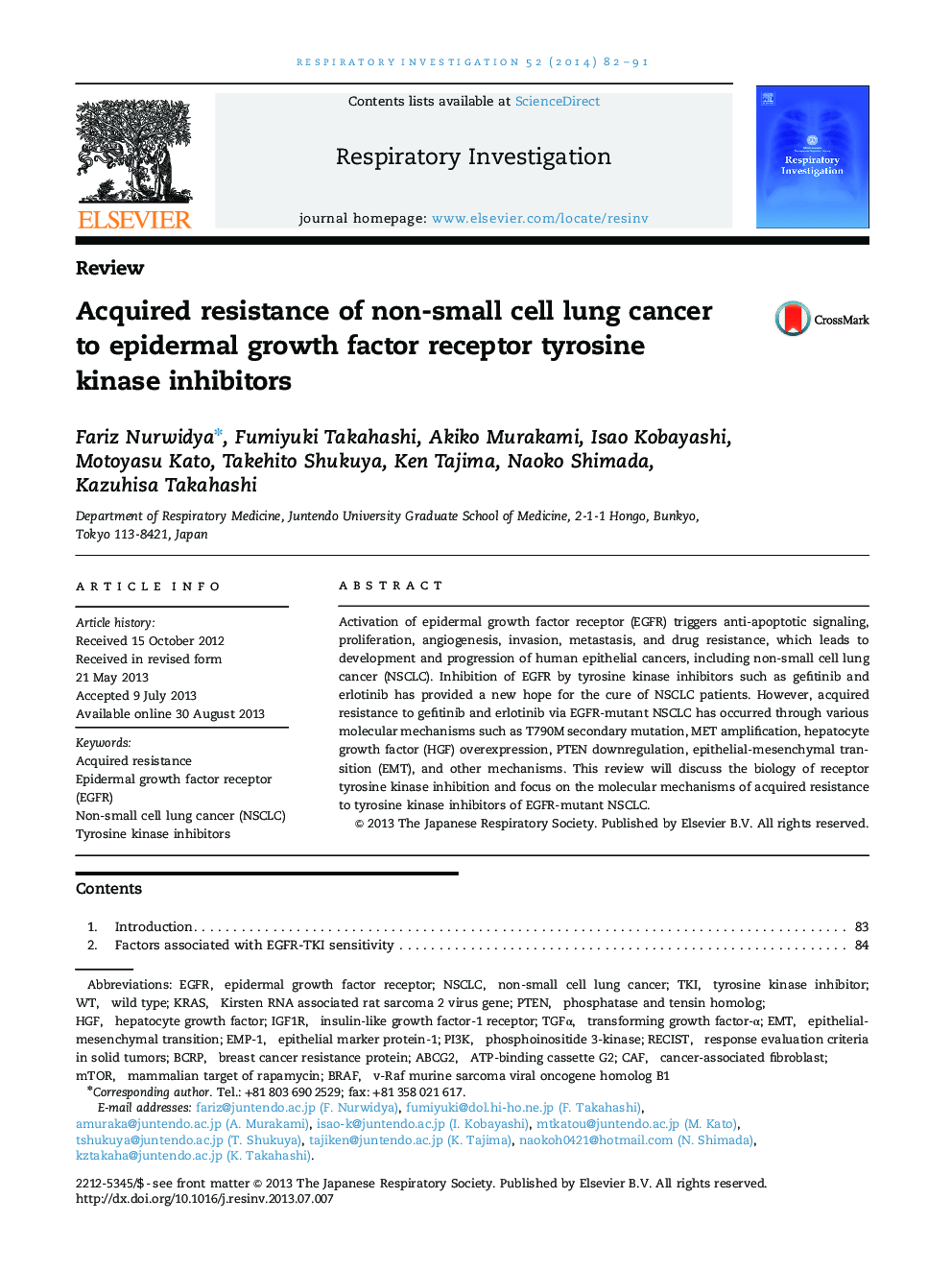| Article ID | Journal | Published Year | Pages | File Type |
|---|---|---|---|---|
| 10172104 | Respiratory Investigation | 2014 | 10 Pages |
Abstract
Activation of epidermal growth factor receptor (EGFR) triggers anti-apoptotic signaling, proliferation, angiogenesis, invasion, metastasis, and drug resistance, which leads to development and progression of human epithelial cancers, including non-small cell lung cancer (NSCLC). Inhibition of EGFR by tyrosine kinase inhibitors such as gefitinib and erlotinib has provided a new hope for the cure of NSCLC patients. However, acquired resistance to gefitinib and erlotinib via EGFR-mutant NSCLC has occurred through various molecular mechanisms such as T790M secondary mutation, MET amplification, hepatocyte growth factor (HGF) overexpression, PTEN downregulation, epithelial-mesenchymal transition (EMT), and other mechanisms. This review will discuss the biology of receptor tyrosine kinase inhibition and focus on the molecular mechanisms of acquired resistance to tyrosine kinase inhibitors of EGFR-mutant NSCLC.
Keywords
EGFRv-raf murine sarcoma viral oncogene homolog B1TKIHGFBRAFBcrpTGFαIGF1RmTORKRASABCG2CAFPI3Ktransforming growth factor-αEMTRECISTNon-small cell lung cancer (NSCLC)NSCLCNon-small cell lung cancerHepatocyte growth factorphosphatase and tensin homologphosphoinositide 3-kinasecancer-associated fibroblastResponse Evaluation Criteria in Solid TumorsAcquired resistanceTyrosine kinase inhibitorTyrosine kinase inhibitorswild typemammalian target of rapamycinbreast cancer resistance proteinPtenEpithelial-mesenchymal transitionInsulin-like growth factor-1 receptorEpidermal growth factor receptorEpidermal growth factor receptor (EGFR)
Related Topics
Life Sciences
Immunology and Microbiology
Immunology and Microbiology (General)
Authors
Fariz Nurwidya, Fumiyuki Takahashi, Akiko Murakami, Isao Kobayashi, Motoyasu Kato, Takehito Shukuya, Ken Tajima, Naoko Shimada, Kazuhisa Takahashi,
